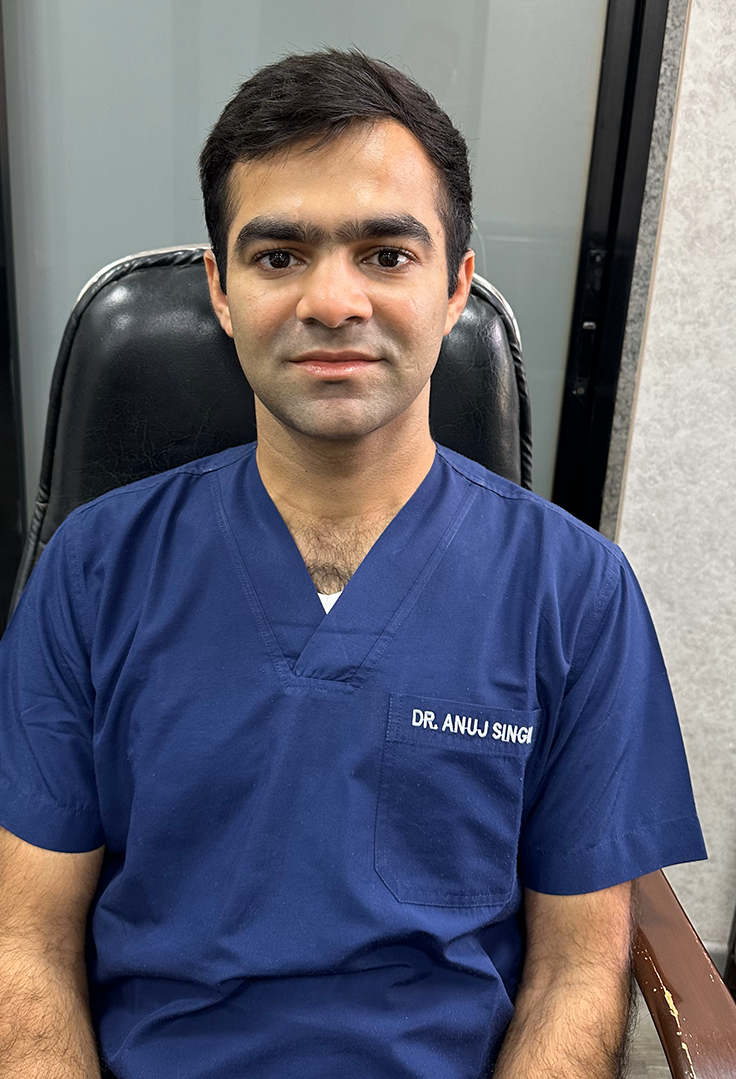Laparoscopic Heller's Cardiomyotomy

What is Achalasia and Why Is It Important?
Achalasia is a rare condition that affects the food pipe (esophagus), the tube that carries food from your mouth to your stomach. In achalasia, the lower esophageal sphincter (LES) fails to relax properly, leading to difficulty swallowing food and liquids. This can result in significant discomfort and nutritional issues, making it important to seek treatment.
What is Laparoscopic Heller's Cardiomyotomy?
Laparoscopic Heller's Cardiomyotomy is a minimally invasive surgical procedure designed to treat achalasia by cutting the muscle fibers of the lower esophageal sphincter. This helps to relieve the obstruction and allows food to pass more easily into the stomach. Performed by skilled surgeons like Dr. Anuj Naresh Singhi, recognized as the best laparoscopic surgeon in Mumbai, this surgery offers a promising solution for patients struggling with achalasia at Apollo Endoscopic & Robotic Obesity Centre, Mumbai.
Why is Laparoscopic Surgery Better Than Open Surgery?
Laparoscopic surgery has several advantages over traditional open surgery:
- Less Pain: Smaller incisions result in less trauma to the body, leading to reduced postoperative pain.
- Quicker Recovery: Patients typically spend less time in the hospital and can return to their normal activities sooner.
- Fewer Complications: Laparoscopic procedures often have lower rates of infection and complications compared to open surgery.
These benefits make laparoscopic surgery an attractive option for treating conditions like achalasia.
Who Needs a Laparoscopic Heller's Cardiomyotomy?
Candidates for Laparoscopic Heller's Cardiomyotomy usually include individuals diagnosed with achalasia who experience significant symptoms such as:
- Severe difficulty swallowing (dysphagia)
- Regurgitation of food
- Unexplained weight loss
- Significant impacts on daily life due to swallowing issues
Your healthcare provider, often a GI specialist in Mumbai, can help determine if this surgery is the right choice for you.
What to Expect Before Surgery
Before your surgery, you will undergo a thorough evaluation, which may include:
- Endoscopy: To visualize your food pipe (esophagus) and rule out other issues.
- Barium Swallow Study: To see how well your food pipe (esophagus) is functioning.
- Esophageal Manometry: To assess the muscle contractions of your food pipe (esophagus).
You will also receive instructions regarding diet and medications to follow in the days leading up to the procedure.
How Is the Laparoscopic Heller's Cardiomyotomy Done?
During the Laparoscopic Heller's Cardiomyotomy procedure:
- Anesthesia: You will be placed under general anesthesia.
- Incisions: Several small incisions are made in your abdomen.
- Dissection: The surgeon uses specialized instruments to carefully dissect the tissue around the food pipe (esophagus).
- Myotomy: The muscle fibers of the lower esophageal sphincter are cut, allowing it to relax.
- Closure: The cuts (incisions) are closed, often with sutures or adhesive strips.
This procedure is typically completed within 1-2 hours.
Recovery After Laparoscopic Heller's Cardiomyotomy
After surgery, you can expect:
- Hospital Stay: Most patients are discharged within 1-2 days.
- Diet Changes: You will start with clear liquids and gradually move to soft foods.
- Activity: Light activities can typically be resumed within a few days, but avoid heavy lifting for at least two weeks.
Follow-up appointments with Dr. Anuj Naresh Singhi or your GI specialist in Mumbai will help monitor your recovery.
Are There Risks and Complications?
While Laparoscopic Heller's Cardiomyotomy is generally safe, potential risks include:
- Infection: At the incision site.
- Bleeding: Rare, but possible.
- Gastroesophageal Reflux Disease (GERD): Some patients may experience increased reflux after surgery.
Discuss any concerns with your healthcare provider to ensure you are well-informed.
How Will Life Be After Gallbladder Removal?
Most patients experience significant improvement in their ability to swallow after the procedure. You may notice:
- Increased enjoyment of meals: With fewer swallowing difficulties.
- Dietary adjustments: Some patients may need to make minor changes to their diet to manage any reflux symptoms.
Regular follow-up care with a best GI surgeon in Mumbai can help you maintain your health post-surgery.
How Much Does Laparoscopic Heller's Cardiomyotomy Cost?
The cost of Laparoscopic Heller's Cardiomyotomy can vary based on factors such as:
- The hospital or surgical center
- Your insurance coverage
It’s best to discuss costs with your healthcare provider and insurance company to get a clear understanding of your financial responsibilities.
Technological Advances in Laparoscopic Surgery
Advancements in technology have significantly improved the outcomes of laparoscopic surgeries. Innovations such as:
- Robotic-assisted surgery: Allows for greater precision and control during the procedure.
- Enhanced imaging techniques: Help surgeons visualize the surgical area more clearly.
These advancements continue to make laparoscopic surgery safer and more effective for patients.
Conclusion
If you're facing the challenges of achalasia, Laparoscopic Heller's Cardiomyotomy offers a promising solution to improve your quality of life. With the expertise of Dr. Anuj Naresh Singhi, one of the best laparoscopic surgeons in Mumbai, you can feel confident in your care. Don’t hesitate to reach out to a GI specialist in Mumbai to discuss your symptoms and explore your treatment options at Apollo Endoscopic & Robotic Obesity Centre, Mumbai.
Frequently Asked Questions (FAQs)
- 1. How long does the surgery take?
The procedure usually lasts 1-2 hours. - 2. Will I need to stay in the hospital?
Most patients stay for 1-2 days post-surgery. - 3. What should I eat after surgery?
You’ll start with clear liquids and gradually move to soft foods. - 4. How soon can I return to normal activities?
You can generally resume light activities within a few days, but avoid heavy lifting for at least two weeks. - 5. What if I still have symptoms after surgery?
It's important to follow up with your healthcare provider to address any ongoing concerns.

